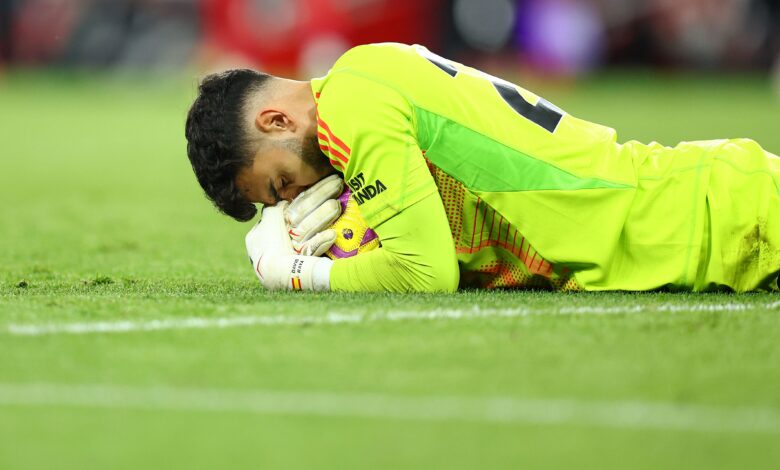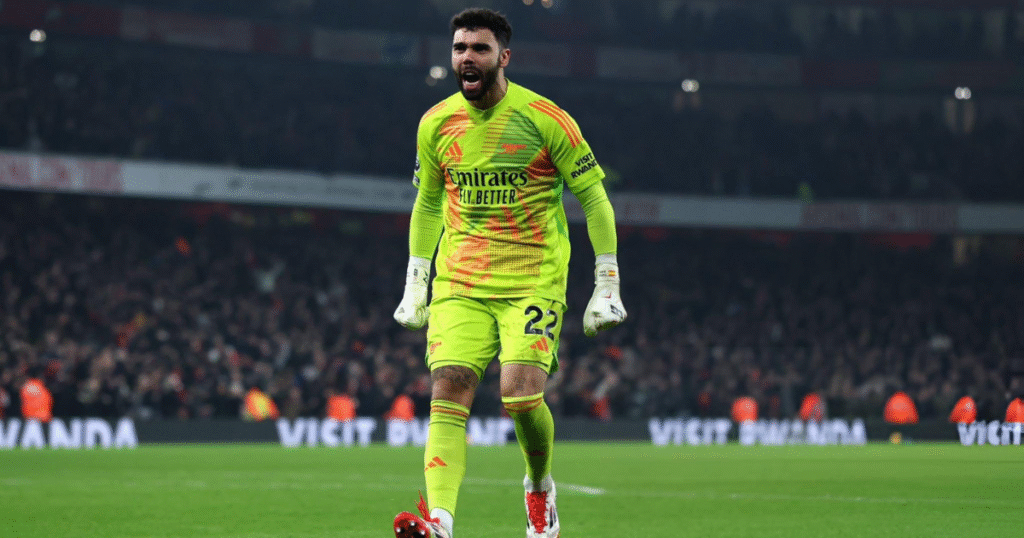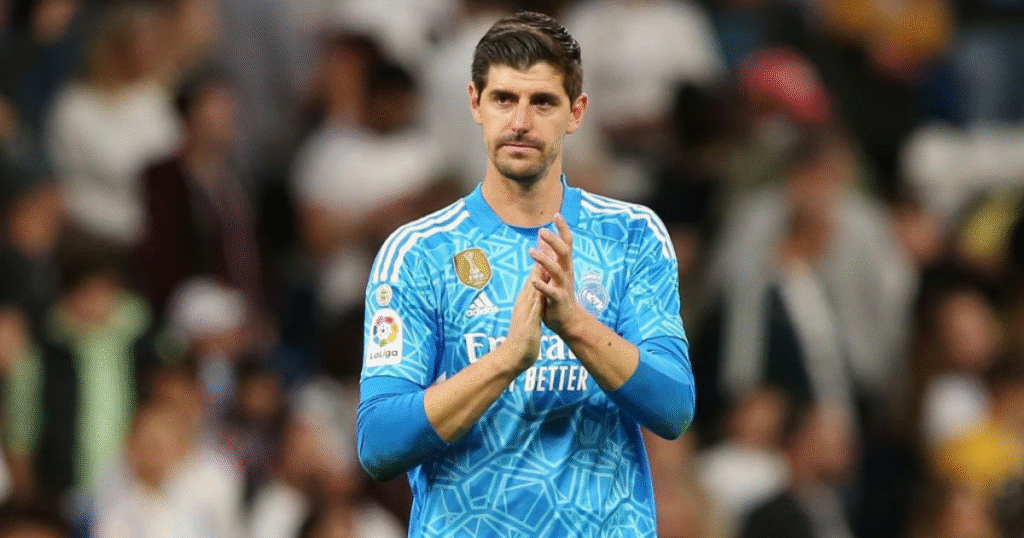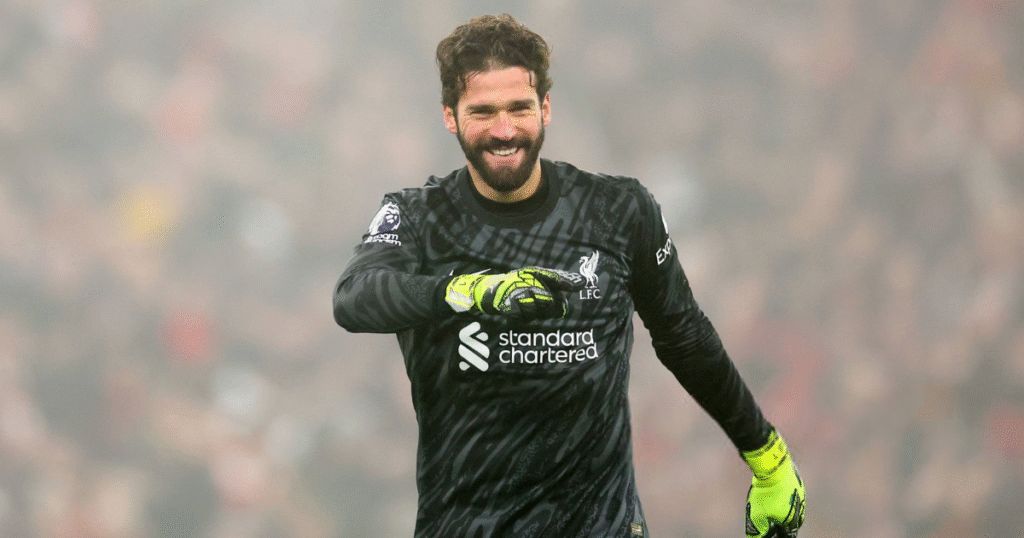Best Goalkeepers in the World 2025 (Ranked)

Goalkeepers are the most overlooked part of football, they are often deprived of their due credits for their instrumental role at the back while keeping their bodies on the line to ensure a victory.
Keepers are vital cogs in any team’s defence, their primary responsibility includes guiding the backline, making crucial saves, keeping clean sheets and restricting opposition from finding the back of the net.
Over the years, the role of the number one has evolved in modern-day football. However, the primary job remains the same which is to prevent the rivals from scoring goals and guarding the post.
Curious to know who are the current best savers in the world, we have got you covered at Sportsdunia, which provides the fastest Football scores. Meanwhile, let’s find out who are the top 3 best goalkeepers in the world currently.
David Raya

At first, we have David Raya, the Spaniard is arguably the best shot-stopper in the world currently, plying his trades with the Premier League giants Arsenal. The 29-year-old was awarded the Premier League Golden Glove accolade for keeping the most clean sheet in the EPL and cemented his stature as the best keeper in the world.
Thibaut Courtois

If it’s about best keepers, then one has to mention Thibaut Courtois nicknamed ‘the Belgian Wall’. The Real Madrid ace keeper has proven his credential in the past few seasons between the sticks, playing a key role in bringing enormous success to the Los Blancos including two Champions League and three La Liga titles respectively.
Alisson Becker

The Liverpool custodian, Alisson Becker has been phenomenal in goal for both club and country over the seasons. The Brazilian international has been influential in the Reds’ recent glory including the English league title and European glory. Despite, injury woes, the 32-year-old remains one of the best goalkeeper in the world football.
Nowadays, Football is not only about flashy skills and flare, instead, it’s more oriented towards performance-based statistics and data. Clubs, players, managers and fans rely on statistics metrics to determine which player has made a significant impact on the game.
The performance stats that are used to measure a player’s contribution include, xG, pass completion rate, chance creation, saves, dribbles work rate etc.
The advanced football analysis also helps in identifying the true potential of players be it on the field or off the field for marketing and sponsorship purposes. In recent times, teams have relied on such technology for making recruitments, signings and squad revamps.



